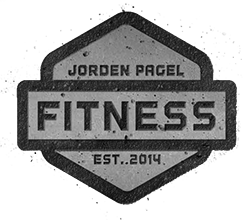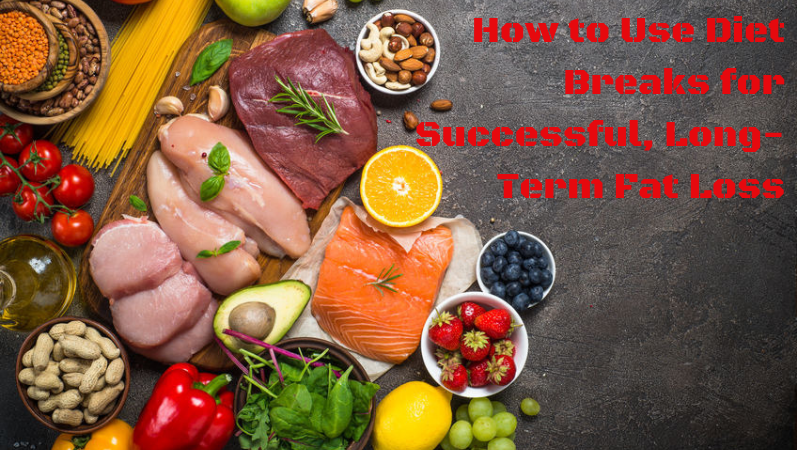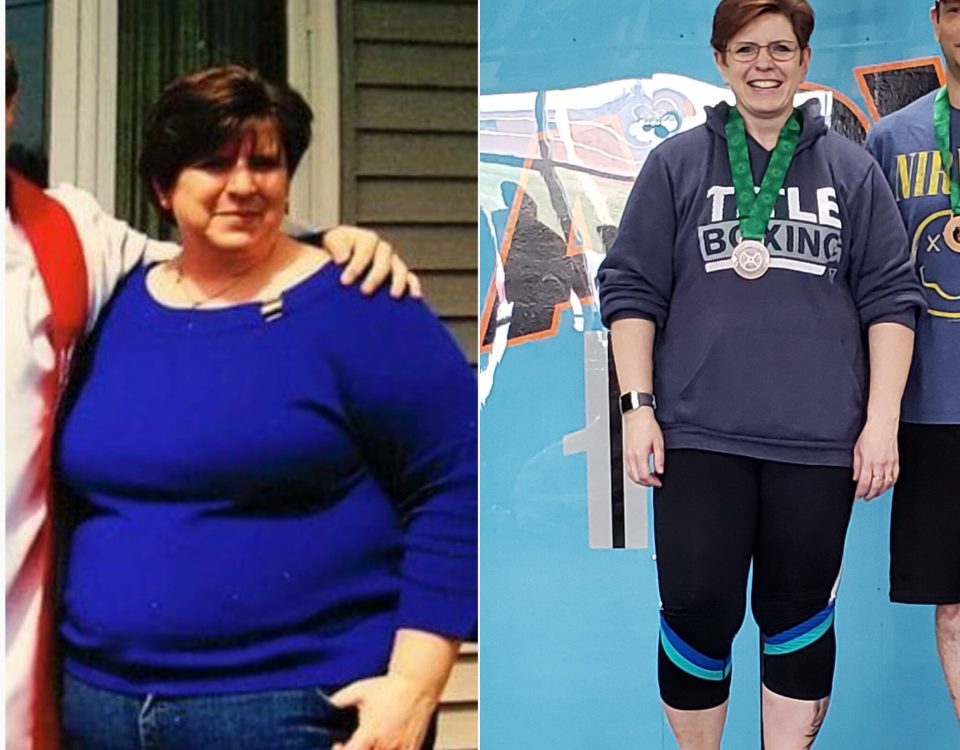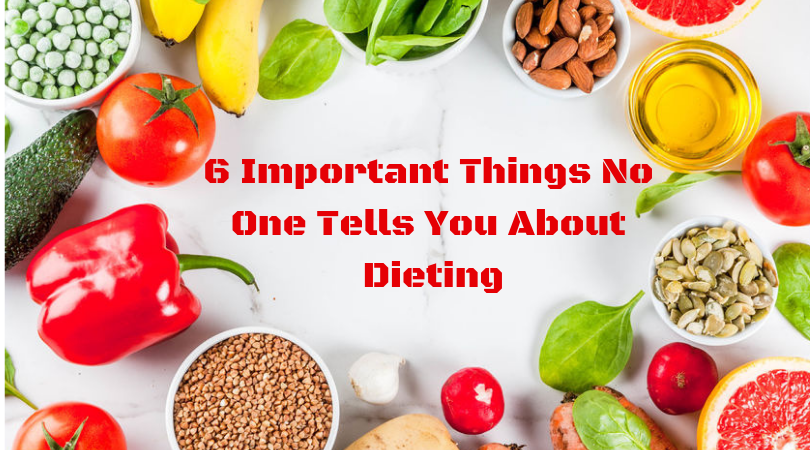The Complete Incomplete Guide to Supplements
As a trainer and coach one of the things I get asked about a lot are supplements.
Almost everyone in the fitness industry has an opinion on supplements. Some hate them, while others depend on selling supplements to make a living.
Neither side is right or wrong, it really just depends on your experience with supplements (or in some cases how slimy and money-hungry you are).
I fall somewhere in the middle. Every since I starting lifting weights for high school football I have always taken supplements. At first it was out of naiveté, not knowing what supplements really did and just doing it because, “Protein bro, gotta get that protein!”
Now I take them because I have a much better understanding of what they do, which ones will help me reach my goals, and which ones are complete crap.
And that’s why I wrote this guide; to provide a no-B.S. breakdown of what supplements are for, which ones are worth the money, and which ones aren’t.
And as my experience with supplements has evolved over the years, so will this guide. The world of health and fitness is always changing and so should the information we provide.
Are Supplements Necessary?
Before we get into discussing different kinds of supplements, we first must answer the burning question most people have about them:
“Are supplements necessary?”
The dictionary defines supplement as:
“Something that completes or enhances something else when added to it.”
So, looking at that definition, the short answer to the question is “No, supplements aren’t necessary”.
The longer answer though is, “It depends”.
Like anything else in fitness, there are no absolutes when it comes to supplements.
Maybe you are a vegan who has trouble getting enough protein in your diet. In that case, a protein powder might be necessary.
However, if you are someone who eats a lot of dead animal flesh, a protein powder may be a waste of your money.
It all depends on you and your situation.
People lost weight, built muscle, and got stronger long before supplements every existed. So are they necessary? No. May they help you reach your goals? Yes.
The Biggest Problem With Supplements
As consumers, we trust food companies to be accurate in the labeling of their products. We want to know what we are consuming and just how many calories, protein, carbs, fats, vitamins and minerals, etc., are in those products.
Food and beverage manufacturers are regulated by the Food and Drug Administration, so their labels are (mostly) accurate. With supplements however, this isn’t the case.
The FDA does not regulate supplement companies.
That’s right…the protein powder, creatine, vitamins, and everything sold by supplement companies that you put into your bodies are not regulated by the FDA. They do not test the products, monitor the manufacturing process, or have anything to do with the approval of supplements.
As you can imagine, some supplement companies have taken advantage of this. Many of the products are created without ever consulting someone with a professional dietary or medical background.
In addition, supplements are often made with low-quality ingredients, and independent testing has shown that in a lot of cases the supplements don’t even contain many of the ingredients on the label.
Now, this isn’t true in all cases. There are many companies, like BioTrust, Onnit, Citadel Nutrition, and others that take it upon themselves to ensure the highest quality product by consulting with medical professionals and registered dietitians when creating their supplements. So it’s not all bad.
Breaking Down Supplements
Alright, time to get down to brass tacks and take a detailed look at some of the more popular supplements on the market.
Where applicable, I have suggested some brands and products that I use myself. I have tried a lot of different supplements over the years and these are some of the best and highest quality products I have found. Feel free to check out the links for more information on the products.
Protein
What is it: We’ll start with protein because it is probably the most widely used supplement on the market.
We know that protein is extremely important. It helps build and maintain muscle, provides a satiating effect while dieting, and has a high thermic effect. Resistance training and protein go hand-in-hand. If you are lifting heavy objects, you need to be consuming an adequate amount of protein.
People use protein powder for two main reasons: Either they have trouble getting enough protein from whole foods in their diet, or for convenience sake.
Make no mistake; you do not NEED to consume a protein supplement. Foods containing protein are fairly easy to come by. Eating enough of those foods without feeling like you are going to explode however, can take some practice. That’s where protein powders come in.
There are many different kinds of protein powder: whey, casein, soy, egg, plant, unicorn…okay, maybe not that last one, but you get the point; there are a lot of options when it comes to protein powder.
Personally, I have never used anything other than whey and casein. Which one you use is really going to be a matter of personal preference. For a more detailed breakdown of some of the subcategories of protein, check out this article here.
Should I use it: If you are someone who has trouble getting enough protein from whole food sources in your diet, or just likes the convenience of a quick shake on the go, then yes you should.
If however, your diet is high in lean meats, fishies, eggs, and other protein-rich sources, then a protein powder is probably a waste of money.
What I recommend: My three favorite protein powders are made by Biotrust, Myprotein, and Optimum Nutrition. BioTrust has probably the best tasting chocolate protein I have ever tried, while MyProtein and Optimum Nutrition have tons of other great flavor choices to pick from.
Creatine
What is it: Creatine is probably the most researched supplement in the history of supplements. Yet, there are still some out there who view it as unsafe, or some sort of steroid.
Creatine is neither however. In fact, it is one of the most effective supplements you can buy.
Creatine works by providing the body with extra energy when it needs it immediately. While glucose is the body’s preferred source of energy, it takes a little while for your body to turn it into usable energy. This is where creatine jumps in and provides your body the energy when it needs it fast (think your first few reps of a lift, sprints, or other sort, high intensity bursts of activity).
Creatine has also been shown to improve aerobic performance, increase bone density, and improve cognitive function. For an extremely detailed breakdown on creatine, check out this article on Examine.com.
Should I use it: If you are regularly performing bouts of resistance training then creatine will only help your performance. It will aid in increasing strength, building muscle, recovery, and provide the body with extra energy.
What I recommend: Don’t be fooled into buying a creatine supplement that has creatine, plus a million other ingredients that you don’t need. A basic creatine monohydrate supplement like this one from Optimum Nutrition or this one from Myprotein is all that is necessary.
Pre-Workouts
What is it: Pre-workout supplements are designed to give you that extra boost in your training.
A good pre-workout supplement is going to contain 3-4 key ingredients: caffeine. beta-alanine, taurine, and/or tyrosine, with creatine usually mixed in as well.
Caffeine works as a stimulant and has repeatedly been shown to improve muscular endurance by decreasing fatigue. The effective dose is going to vary from person to person. If you already drink a lot of caffeine, a pre-workout containing caffeine may not be the best choice seeing as it wont have that much of an effect.
Beta-alanine is another key ingredient in pre-workout supplements. Beta-alanine works to increase muscular strength and power, which allows you to maintain a higher intensity for longer periods of time. If you’ve ever taken a pre-workout and felt a “tingling” sensation, that is the beta-alanine.
Taurine and tyrosine work as energy boosters and are different from stimulants in that they actually provide nutrients to the muscles that promote stamina, rather that just stimulate the central nervous system.
Should I use it: Pre-workouts are one of those “it depends” supplements. I love using pre-workouts because I like the extra boost I get going into my training sessions. This is especially important if I train in the morning.
Pre-workouts are not necessary by any means, but they do contain some benefits like the ones listed above. Simply drinking coffee or expresso before a workout can provide the same stimulant effect. The only difference is you get none of the other benefits that come with a pre-workout mix.
What I recommend: When it comes to pre-workout supplements, less is more. The only real beneficial ingredients are the ones listed above. If you start seeing pre-workout powders containing more than five ingredients, you are likely buying a lot of crap you don’t need.
The only pre-workout supplement I use is Tier 1 from Citadel Nutrition. It contains only caffeine, beta-alanine, tyrosine and creatine. It also doesn’t seem to give you too much of that tingly feeling either, which is nice.
Multivitamins
What is it: Multivitamins are used to help fill in the nutritional gaps, so to speak. However, even if your diet is high in a variety of whole foods, vitamin and mineral deficiencies may still exist. Here are some of the more common ones:
Vitamin D: There aren’t many foods that naturally contain vitamin D so many companies fortify their foods with it. You can however get vitamin D naturally from eggs and fish. Most people however, get a majority of their vitamin D from sunlight. Just 15 minutes of direct sunlight a day can give you what you need.
Iron: Iron is vital to the growth and maintenance of our bodies, including the production of red blood cells, and fighting fatigue. Unfortunately, iron rich foods are a little harder to come by. Organ meats are very high in iron, but many Americans typically do not eat those. Most animal proteins do contain iron, just not as in as great amounts.
Magnesium: While magnesium makes up a very, very small portion of our bodies (>1%), it is vital for them to function properly. Low magnesium intake has been linked to type 2 diabetes, osteoporosis, heart disease, asthma, and colon cancer. The best source of magnesium are leafy green veggies, which unfortunately most people do not eat enough of, so supplementation might be necessary.
Should I use it: If you diet is highly varied, you likely don’t need a multivitamin, but supplementation with the aforementioned vitamins & minerals may still be necessary. The best way to get an idea of any deficiencies you may have would be to get blood-work done by your doctor.
What I recommend: Skip the multivitamin and get yourself Athletic Greens. Just one serving contains the nutrient equivalent to 10 servings of fruits and vegetables. It also contains probiotics and enzymes to help with gut health and digestion. And, despite any preconceived notions you may have about a greens drink, it actually tastes really good!
Omega-3 Fish Oil
What is it: Fish oil is arguably one of the most popular supplements on the market in recent years. And for good reason; omega-3 fish oil has been shown to provide a whole host of health benefits.
Omega 3’s, and their counterpart Omega 6’s, are called essential fatty acids, which means the body needs them to function properly. Our bodies however, cannot produce them themselves, so we must get them from our diet.
Unfortunately, the western diet is very high in Omega-6 fatty acids, and low in Omega-3 fatty acids. This is because of the large amounts of meat, eggs, and highly processed vegetables oils we eat (which are high in Omega-6), and the low amount of fatty fish (high in Omega-3).
A diet high in Omega-6 fats leads to higher levels of inflammation in the body. And while some inflammation is necessary to protect the body from injury, excess inflammation has been linked to some of the most serious diseases human beings face, such as heart disease, diabetes, Alzheimers, and many forms of cancer.
On the other side, Omega-3’s are anti-inflammatory. Omega-3’s are made up of eicosapentaenoic acid (EPA) and docosahexaenoic acid (DHA). A diet with an Omega-3 to Omega-6 ratio of 1:1 leads to healthier blood vessels, lower risks of diseases, and reduce blood triglycerides associated with heart disease.
Should I use it: If you eat a diet high in fatty fish, then probably not. 250mg of combined DHA/EPA is sufficient for general health and can easily be obtained through your diet, but closer to 1g combined per day may be more beneficial according the American Heart Association.
What I recommend: Quality is everything when it comes to fish oil, and Athletic Greens makes some of the highest quality fish oil I have found.
BCAAs
What is it: BCAAs or Branched Chain Amino Acids is a term used to describe the chain of three amino acids leucine, isoleucine, and valine.
The thought process behind BCAA supplementation is to provide the body with amino acids to aid in muscle protein synthesis in times of inadequate nutrition or under-eating, like you would be if you were dieting. In this case, BCAAs do help prevent muscle loss.
Should I use it: Despite their muscle-sparing properties, BCAAs probably aren’t necessary. Aside from saving you a few calories, the benefits of taking BCAAs aren’t any greater than just consuming enough protein. If you are consuming 1g per lb of bodyweight of protein, you are likely getting all the amino acids you need.
What I recommend: Save your money and just eat real protein.
Melatonin
What is it: Melatonin is a hormone secreted by the body to help trigger you into falling asleep. Under normal conditions, melatonin is produced in the evenings when it gets dark. However, the increase in the use of artificial light has changed the body’s natural melatonin production process, causing it to release less.
As I’ve talked about before, sleep is EXTREMELY important when it comes to your health. Sleep helps regulate testosterone and growth hormone production, helps you recover, and limits the release of cortisol.
The less you sleep, the more cortisol is released. As cortisol increases, growth hormone production decreases. Cortisol also hinders fat burning and can increase belly fat storage.
Should I use it: Melatonin is one of those “nice to have” supplements. It certainly isn’t necessary, especially if you don’t have trouble falling asleep. If you do however, melatonin can help transition your body from awake mode to sleep mode.
What I recommend: Melatonin can be picked up at pretty much any drug store, but this is what I like.
Fat Burners
What is it: Fat burners is the category of supplements designed to either increase caloric expenditure, blunt hunger, or both.
Simply put, most supplements in this category are complete crap. The effects are way over-blown, and none can replace a proper diet and exercise.
There is no pill, powder, root, or magic fairy dust that will burn fat while you sit on your couch! Period.
Some fat burners have shown to have a marginally positive effect on weight loss, but these results don’t outweigh the outrageous costs associated with fat burners. Here is the low-down on some of the more popular fat burner supplements:
Caffeine – In addition to being a great pre-workout stimulant, caffeine has been shown to improve caloric expenditure on a marginal basis. Caffeine acts as a thermogenic, which means it increases heat production in the body, as well as can signal the body to release fatty acids to be used as fuel.
Supplementation recommendations for caffeine are difficult because the more caffeine you consume, the less effective it becomes. If you are a big coffee or soda drinker, your caffeine tolerance is likely too high for supplementation to be effective. For the caffeine intolerant, 100-200mg per day is a good starting point.
CLA – CLA, or Conjugated Linoleic Acid is likely the most studied weight loss supplement in existence. Many studies have shown that CLA can aid in weight loss. However, just as many studies have shown that CLA has no effect on weight loss at all. The effects of CLA are just too inconsistent to recommend it as a supplement to waste your money on.
Yohimbine – Though technically not a fat burner, yohimbine has been shown to make the body more susceptible to fat loss. Yohimbine doesn’t work as a thermogenic or by blunting hunger, but rather as an inhibitor to your body’s alpha-2 receptors.
These receptors are found in the “stubborn fat” areas on your body (love handles & lower back for men, hips & thighs for women). By inhibiting these receptors, yohimbine can increase fat mobilization in these areas.
While yohimbine is probably the most effective “fat burner” on the market, it should be taken with caution. This is because excessive yohimbine supplementation can cause elevated heart rate and anxiety. If you are natural anxious or prone to anxiety, yohimbine should probably be avoided.
Yohimbine works best when taken fasted. Between 5-15mg per day seems to be the effective dose. Yohimbine is not going to help you lose massive amounts of fat, however if you are someone who is fairly lean but struggling to lose fat from those typical problem areas, yohimbine may help.
Should I use it: Fat burners are largely a waste of money. There isn’t a single pill out there that is a substitute for a proper diet and exercise. No exceptions…and I cannot stress that enough.
Side note: There are many popular fat burners that I didn’t mention. That is because the “benefits” are so laughable and largely overblown that I am not going to waste the energy it would take to write about them.
What I recommend: Diet and exercise. Counting your macros. Resistance training. No pill can be taken as a substitute for these. The marginal effectiveness of any fat burning supplement does not outweigh their cost.
Supplements are just that, supplemental. They are far from necessary in order to reach your goals. Yes they can help, and when chosen wisely can definitely make a good training and nutrition program even better.
That’s why I put together this guide. If you are going to use supplements, I want you to have all the information you need to make an informed decision about where and what you are going to spend your money on. Because, I don’t know about you, but I like my money, and I want to make sure that what I’m spending it on is right for me, my goals, and my lifestyle.
Further Reading:
The folks at Examine.com have put together some amazing scientific based resources on supplements. They are always looking at new studies and updating their information. If you want even more detail about a certain supplement, I would recommend checking them out.








6 Comments
[…] The Complete Incomplete Guide to Supplements — Jorden Pagel […]
Great work Jordan and congrats on making the articles of the week.
[…] The Complete Incomplete Guide to Supplements […]
[…] An interesting guide on supplements here going over what the most common ones are and why they may or mayn’t be necessary. https://jordenpagelfitness.com/the-complete-incomplete-guide-to-supplements/ […]
Great write-up man! Congrats on making Best Fitness Articles from the PTDC!
Good information. Lucky me I ran across your website by accident
(stumbleupon). I’ve saved it for later!